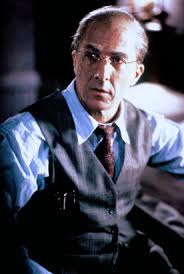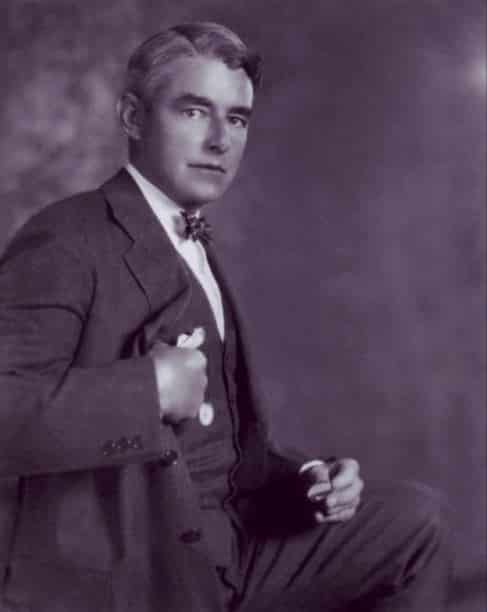How Willy Loman & Jay Gatsby representatives of the American Dream.
Fitzgerald and Miller create characters that fulfill the aspects and mindset of the American Dream without attaining it. The American Dream includes starting from nothing and being able to prosper with a family unit and a successful career. Willy Loman and Jay Gatsby from Death of a Salesman and The Great Gatsby, continuously feel like they need more regardless of what they already have.
In this sense, they feel like they must work hard to meet their desired objectives. Ultimately, this has a negative impact on their relationships. With Gatsby and Willy, the American Dream leads to a constant desire for growth, prioritizes hard work, and affects both characters’ relationships.

Willy Loman, despite living comfortably, has a constant desire to attain more pleasure, which can come in the form of wealth and emotional validation. One instant that proves this statement to be true is when readers find out that Willy was unfaithful to his wife. “THE WOMAN: Me? You didn’t make me, Willy. I picked you/WILLY, pleased: You picked me?” (Miller, 38)
This supports the idea of Willy wanting more; even though he has a loving wife and family, he still went out with another woman. This was clearly to seek the emotional validation he wasn’t getting from Linda. As for wealth, he always poke about the possibility of getting a promotion: “If old man Wagner was alive I’d be in charge of New York by now!” (Miller, 14)
While Willy may have a decent paying job and can afford to pay his bills, he continuously complains about a lack of promotion while doing nothing substantial to attain it. His job is a part of the stereotypical American Dream and something he enjoys, yet it’s still not enough to satisfy his inner desires. Overall, Willy is a clear example of always wanting more regardless of what he has already achieved.
Gatsby shows his emotional emptiness; although he has the wealth that everyone craved, he still feels romantically unfulfilled. He has already achieved the financial goal that most people strive for, his obsession for Daisy persists. “ ‘But it wasn’t a coincidence at all’ ‘Why not?’ ‘Gatsby bought that house so that Daisy would be just across the bay.’ “ (Fitzgerald, 83)
Daisy is his ultimate goal, but even when he is in a relationship with her, he still expects more commitment and genuine affection from her. At the same time, Gatsby’s dialogue clearly shows his passion for her, and he even moves houses for her. However, regardless of what Gatsby does and tries to do, this ‘perfect life’ he chases for so long will never be attained due to her lack of interest. “He stretched his arm out to the dark water in a curious way…and distinguished nothing but a single green light” (Fitzgerald,22-23)
The green light is a perfect symbol of the American dream and its unattainability. The more Gatsby tries, the more he wants. This indicates that his fantasy of the relationship is more intense than reality. He’ll never be happy with what he has, just like he can never grab the green light. Overall, despite his high social class, he continued to desire more.

Moreover, the characters prioritize hard work directly in an attempt to achieve the American Dream. Willy keeps reinforcing hard work into his career which can be seen in his actions and his dialogue. He drives a long way for his job, despite the frustration with the extensive distance, “I’ll have to send a wire to Portland.
I’m supposed to see Brown and Morrison tomorrow morning at ten o’clock to show the line” (Miller, page 14) Here, Willy shows dedication despite his own exhaustion and age. Willy continues to support the company by saying he is crucial in another location and then talks about his ‘important’ responsibilities afterward.
Since the American Dream is based on working hard, Willy believes that convincing his family that’s he’s important to the company is the same as achieving it in his own mind. “They don’t need me in New York. I’m the New England man. I’m vital in New England.” (Miller, pg 14)
He implies that he is crucial to the company, which also reveals his lack of trust in Linda. By lying, he is trying to prove that the American dream is easily attainable if one continues to work hard.
Therefore, generally speaking, Willy strongly believes in the importance of hard work. Similarly, though Gatsby’s end goals were corrupt, he had the dedication and a stubborn quality that formed a hard worker. Gatsby found illegal methods through which he attained a higher social status. “I found out what your ‘drug stores’ were” (The Great Gatsby, pg 141)
Here, Tom confirms that Gatsby made his way up the social class-ladder through unethical means. Obvious signs of his hard work are laid out in the book, which includes his mansion, lavish parties, and his clothing and belongings. However, there are also many subtle signs of his work ethic. Since bootlegging was illegal, it would have required protecting himself, constant networking, and keeping his work a secret.
All of these are difficult to do and connect back to the American dream because he was dedicated. Gatsby is a headstrong individual who can’t seem to give up on Daisy, all his efforts go towards the chance of a future with her. “ ‘Can’t repeat the past?’ … ‘Why of course you can!’ “ (Fitzgerald,117)
His parties were only used as a way to network his way to Daisy. This shows that he was always in a state of pre-planning and was trying to establish his romantic goals. In his obsession with the American dream, he sacrificed his morals and his character. Through this, it becomes clear that Gatsby had achieved one of the American dreams, indicating his hardworking quality.
Finally, both characters’ focus on the American dream leads them to neglect their relationships. Their own idea of the American dream becomes more important than the thoughts and ideas of their loved ones. Willy’s belief about success overpower Biff’s own passions, which leads to a poor relationship between the two characters, “Hap, he’s got to understand I’m not the man somebody lends that kind of money to.” (Miller, pg 105). Willy’s disapproval of his son’s career comes from his own definition of success. Biff doesn’t care for society’s ideas of a stable life.
This creates conflict between the two characters; which partially highlights the superficial aspects of the American dream. With all the emotional abuse, Biff is broken down and gives into Willy’s ideals, “People ask where I am and what I’m doing, you don’t know, and you don’t care.” (Miller, 129) Willy’s obsession has created a toxic relationship.
It’s almost as if the father-son aspect of the relationship doesn’t matter unless Biff fits into this small box Willy tries to put him in. This clearly shows how the American dream has ruined Willy’s relations with his loved ones. Overall, the obsession with his ‘ideal life’ affects his relationships leaving permanent damage which is never resolved.
On the other hand, Gatsby believes the only fulfillment in life is to be in a fully committed and stable relationship with Daisy. He believes the only way they can be together is if Daisy admits to never loving Tom. “Just tell him the truth- that you’ve never loved him” (Fitzgerald,139) The American dream consists of a perfect marital relationship between two people that are loyal to each other.
While this is a reasonable expectation, Gatsby takes it to extreme levels. However, by wanting Daisy to fully commit to him and erase her past, he only pushes her away. This connects back to the American Dream due to the idea of a ‘perfect’ life with no flaws. Daisy feels overwhelmed by his expectations and begins to pull away, “ ‘Oh you want too much!’ she cried to Gatsby” (Fitzgerald, 140)
This is the moment Daisy becomes fed up with his pushy and forceful behavior. This pushes the two apart and further proves that his obsession with the American Dream and a perfect life ruins relationships. Overall, his forceful behavior has not only ruined his own mental state but broke his relationship with Daisy.
Ultimately, the obsession with the American Dream promotes continuous greed for advancements, prefers hard work which eventually, affects both characters’ relationships. Willy and Gatsby have a mindset that no matter what they have, they’ll always need more. For their financial and romantic goals, they put as much work into it as possible.
Through all this, probably without even noticing it, they pushed loved ones away. In a modern world, the American Dream is a toxic mindset that is very common. Most people love the idea of a success story that required hard work, support of loved ones and results in a higher social status.
People are selfish and shallow in how they focus directly on the physical and material aspects of success. Unfortunately, this toxic mentality creates room for conflict and abandons a sense of ethics.
